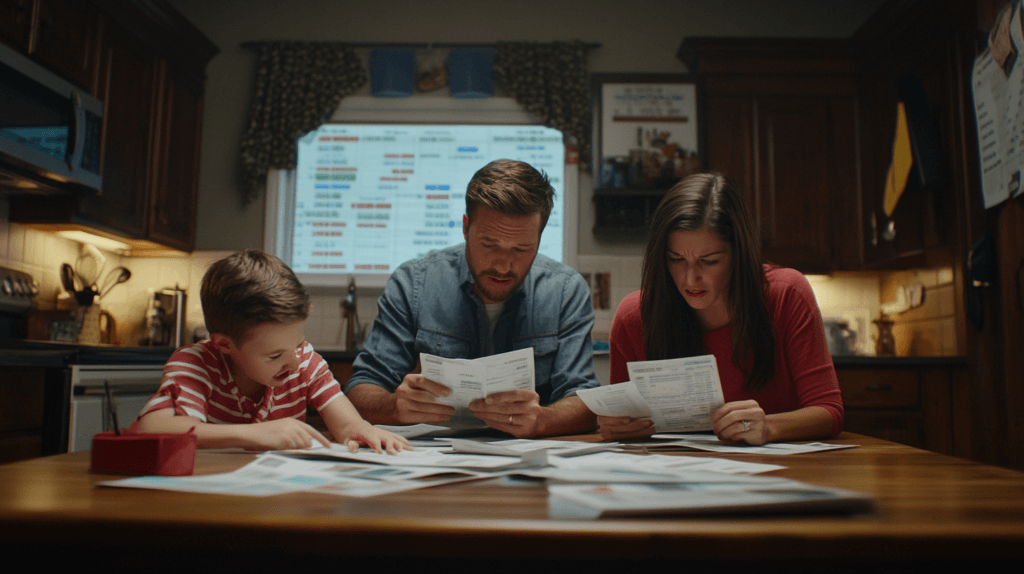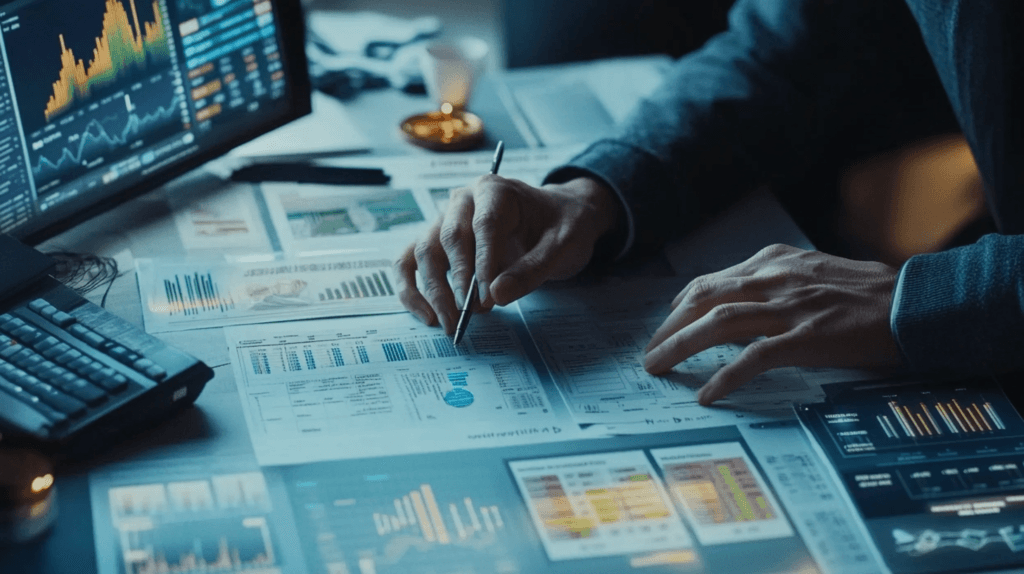Is a Recession Looming? Analyzing the US Economic Outlook and What it Means for Your Wallet
As the US economy continues to face multiple challenges, from inflation to rising interest rates, many experts are warning of a potential recession on the horizon. For individuals and businesses alike, the prospect of an economic downturn raises important questions: What does a recession mean? How could it affect personal finances and business operations? And most importantly, how can one prepare for the possibility of economic uncertainty?
In this comprehensive article, we will explore the key factors that could signal a recession, analyze the current US economic outlook, and provide insights into what a recession could mean for your wallet and how you can navigate through it.
What is a Recession?
A recession is a period of economic decline, typically defined by two consecutive quarters of negative GDP (Gross Domestic Product) growth. During a recession, there is often a decrease in consumer spending, business investment, and employment, leading to a broader economic slowdown. Recessions can vary in length and severity, but their effects are usually felt across all sectors of the economy.
Recessions are part of the normal economic cycle, following periods of expansion, but they can be triggered or exacerbated by various factors such as:
- High inflation
- Rising interest rates
- Supply chain disruptions
- Geopolitical tensions
- Financial market instability

Current US Economic Indicators
1. Rising Inflation
One of the most significant concerns in the US economy is inflation, which hit multi-decade highs in recent years. Inflation erodes the purchasing power of consumers, making goods and services more expensive. As a result, households and businesses alike are forced to adjust their spending habits. High inflation often leads to aggressive monetary policy actions by central banks, such as raising interest rates, to cool down the economy, but these measures can also increase the likelihood of a recession.
2. Federal Reserve Interest Rate Hikes
To curb inflation, the Federal Reserve has implemented several interest rate hikes. While higher interest rates help control inflation, they also make borrowing more expensive for consumers and businesses. For individuals, this means higher mortgage rates, car loan rates, and credit card interest. For businesses, it becomes costlier to finance operations or investments, which can slow down growth and hiring. If rates rise too quickly, the economy could tip into recession.
3. Slowing GDP Growth
Gross Domestic Product (GDP) is one of the broadest measures of economic activity. Over the past several quarters, the US economy has experienced slower GDP growth, driven by weak consumer spending, business uncertainty, and global supply chain issues. While the economy has not yet entered negative territory, sluggish growth can signal that a recession may be approaching, particularly if other indicators continue to worsen.
4. Employment Trends
One of the few bright spots in the economy has been the low unemployment rate, which has remained relatively strong. However, during periods of economic uncertainty, employers often freeze hiring, cut wages, or even implement layoffs. Rising unemployment is a key indicator of an impending recession, and many experts are keeping a close eye on labor market trends.
5. Consumer Confidence
Consumer confidence plays a critical role in the health of the economy. When consumers feel uncertain about their financial future, they tend to cut back on spending. This creates a feedback loop, as reduced spending hurts businesses, which in turn slows economic growth. Recent surveys show that consumer confidence in the US has declined, with many Americans concerned about inflation, rising interest rates, and the possibility of a recession.

How a Recession Could Impact Your Wallet
A recession can affect households and businesses in various ways, primarily through reduced income, increased costs, and tighter access to credit. Below are some of the key areas where individuals may feel the impact of a potential economic downturn.
1. Job Losses and Income Reductions
During recessions, companies often reduce their workforce to cut costs. This can result in job losses, reduced working hours, or pay cuts for employees. Even if you manage to keep your job, you might face wage stagnation or fewer opportunities for raises and promotions. If you are self-employed or run a small business, reduced consumer spending could translate into lower revenues, impacting your bottom line.
2. Rising Cost of Debt
As the Federal Reserve raises interest rates to control inflation, borrowing costs increase across the board. For consumers, this means that carrying debt, such as credit card balances, personal loans, or adjustable-rate mortgages, becomes more expensive. If you rely on credit to cover expenses, you could find yourself struggling to keep up with rising interest payments.
- Mortgage Rates: If you’re in the market for a home, higher interest rates could make it more difficult to afford a mortgage, particularly if you were planning on a variable-rate loan. For existing homeowners with variable-rate mortgages, monthly payments will likely rise.
- Credit Cards: Credit card interest rates tend to rise in tandem with the Fed’s rate hikes. Consumers who carry balances on their cards will see higher interest charges, which can add to the financial burden during a recession.
3. Decline in Investment Portfolios
A recession often brings with it stock market volatility. As businesses struggle with lower demand and reduced profits, the value of stocks and other investments can take a hit. For individuals with retirement accounts or investment portfolios, this can mean a decline in asset value. While markets typically recover in the long run, the short-term losses during a recession can be nerve-wracking for investors.
4. Increased Cost of Living
Even during a recession, inflation may not immediately disappear. The cost of everyday essentials—groceries, gas, healthcare—can continue to rise, placing additional strain on household budgets. With stagnant wages or reduced income, many families may find it difficult to make ends meet, leading to reduced discretionary spending, higher reliance on credit, or the depletion of savings.

How to Prepare for a Potential Recession
While a recession is never guaranteed, it’s wise to be financially prepared for the possibility. Here are some strategies that can help individuals and families protect their financial well-being during uncertain economic times.
1. Build an Emergency Fund
An emergency fund is a safety net that can cover unexpected expenses or replace income in the event of job loss. Experts recommend saving three to six months’ worth of living expenses. Having a robust emergency fund can help you avoid taking on debt or dipping into retirement savings if financial challenges arise during a recession.
2. Pay Down High-Interest Debt
With rising interest rates, carrying high-interest debt becomes more expensive. If possible, focus on paying off credit card balances, personal loans, or variable-rate debts. Reducing your debt load will not only save you money in interest payments but also improve your financial resilience during an economic downturn.
3. Diversify Income Sources
If your income relies heavily on one source, consider finding additional ways to generate income. This could include taking on a side gig, starting a freelance business, or investing in dividend-paying stocks or real estate. Diversifying your income streams can provide a cushion if your primary job is affected by a recession.
4. Adjust Your Budget
During periods of economic uncertainty, it’s essential to reassess your budget and prioritize essential expenses. Look for areas where you can cut back, such as entertainment, dining out, or non-essential purchases. By tightening your budget now, you’ll be better prepared to weather any financial challenges that come your way.
5. Invest Wisely
If you have investments, consider reviewing your portfolio to ensure it aligns with your risk tolerance, especially in volatile times. Diversifying across different asset classes (stocks, bonds, real estate) can help protect your portfolio from large losses during a market downturn. Keep in mind that, historically, the stock market has recovered from recessions, so maintaining a long-term investment strategy is key.

Government and Policy Responses to a Potential Recession
In response to signs of an economic downturn, government agencies and central banks often implement policies aimed at mitigating the impact of a recession and stimulating economic recovery.
1. Monetary Policy Adjustments
The Federal Reserve plays a key role in managing the economic cycle through monetary policy. If inflation cools down and the risk of recession increases, the Fed may slow or reverse interest rate hikes to make borrowing cheaper and stimulate economic activity. Additionally, the central bank could engage in quantitative easing (buying bonds and other assets) to increase liquidity in the financial system.
2. Fiscal Stimulus
The government can also introduce fiscal stimulus measures to help support the economy during a recession. This could include tax cuts, direct stimulus payments to households, or infrastructure investments that create jobs and boost demand. Such measures can provide short-term relief to individuals and businesses, helping to stabilize the economy.

Conclusion
While no one can predict with certainty whether a recession is imminent, the current economic indicators suggest that the US is facing increasing risks of an economic slowdown. From inflation and rising interest rates to slowing GDP growth, these challenges could weigh heavily on both consumers and businesses. By understanding the potential impacts of a recession and taking steps to protect your finances, you can navigate the uncertainty with confidence. Building a robust financial safety




No Comment! Be the first one.